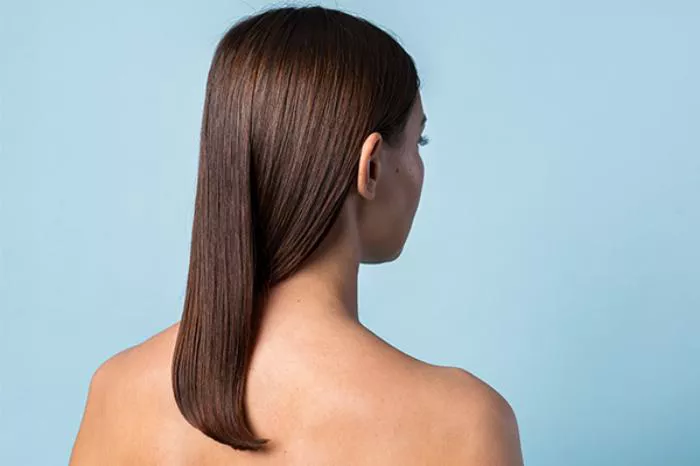Washing your hair daily has long been a topic of debate among beauty enthusiasts and professionals alike. Some argue that washing every day strips the hair of its natural oils, leading to dryness and damage, while others believe that daily cleansing is necessary for maintaining hygiene and a fresh appearance. As a hair expert, I understand the nuances of this issue and aim to provide a comprehensive analysis to help you make an informed decision about your hair care routine.
Understanding Natural Oils and Their Role
Natural oils, scientifically known as sebum, are produced by the sebaceous glands in the scalp. These oils serve several crucial functions:
- Moisturizing: Sebum helps keep the hair and scalp hydrated, preventing dryness and brittleness.
- Protective Barrier: It acts as a barrier against environmental pollutants and harmful UV rays.
- Antimicrobial Properties: Sebum has antimicrobial properties that can help prevent infections and scalp conditions.
When you wash your hair too frequently, you disrupt the balance of these natural oils. This can lead to a series of issues, including:
- Dryness and Frizziness: Without sufficient sebum, the hair can become dry, frizzy, and prone to breakage.
- Scalp Irritation: Over-washing can strip the scalp of its protective layer, leading to irritation, itching, and even dandruff.
- Overproduction of Sebum: In response to being stripped of oils, the scalp may produce more sebum, leading to greasy hair and clogged pores.
The Impact of Water and Shampoo on Hair Health
Water itself is generally beneficial for the hair, as it hydrates and softens the strands. However, the frequency and temperature of water exposure can affect hair health. Hot water can be particularly drying and damaging, as it can strip away natural oils and cause the cuticles to lift, leading to tangles and breakage.
Shampoo, on the other hand, is designed to cleanse the scalp and hair by removing dirt, oil, and product buildup. While this is essential for maintaining hygiene, not all shampoos are created equal. Harsh surfactants and sulfates found in many commercial shampoos can be overly stripping, leading to dryness and damage. On the other hand, gentle, sulfate-free shampoos can effectively clean without disrupting the hair’s natural moisture balance.
The Benefits of Less Frequent Washing
Reducing the frequency of hair washing can offer several benefits:
- Balanced Sebum Production: Allowing the scalp to retain its natural oils can help regulate sebum production, reducing the likelihood of overly oily or dry hair.
- Improved Hair Texture: Less frequent washing can enhance the texture and manageability of the hair, making it softer and more manageable.
- Longer Lasting Styles: If you style your hair regularly, less frequent washing can help your styles last longer, as the natural oils help maintain the shape and hold.
Factors to Consider When Deciding on Washing Frequency
Several factors should be considered when determining how often to wash your hair:
- Hair Type: Fine, straight hair tends to get oily faster and may require more frequent washing, while thick, curly hair can go longer between washes due to slower oil distribution.
- Lifestyle: If you engage in activities that cause excessive sweating or expose your hair to pollution, you may need to wash more often.
- Climate: Humid environments can make hair more prone to oiliness, while dry climates can lead to dryness.
- Product Use: Heavy use of styling products can build up on the hair, necessitating more frequent washing.
Alternatives to Daily Washing
If you find that daily washing is too harsh for your hair, consider these alternatives:
- Dry Shampoo: Dry shampoo can absorb excess oil and refresh the hair between washes, extending the time between washes.
- Co-Washing: Conditioning-only washes, also known as co-washing, can cleanse the hair gently without stripping it of its natural oils.
- Scalp Scrubs: Regular scalp scrubs can help remove dead skin cells and product buildup, promoting a healthier scalp environment.
Conclusion: Finding the Right Balance
In conclusion, whether daily hair washing is healthy or harmful depends on various factors, including your hair type, lifestyle, and personal preferences. While some individuals may benefit from daily washing, others may find that reducing the frequency leads to healthier, more manageable hair. By understanding the role of natural oils, the impact of water and shampoo, and the benefits of less frequent washing, you can tailor your hair care routine to meet your specific needs. Experiment with different methods and listen to your hair to find the perfect balance that keeps your locks looking and feeling their best.
Related topic:
- Can I Wash My Permed Hair Everyday
- Can I Use Hair Treatment Everyday?
- The Ultimate Guide to the Best Shampoos for Dandruff


